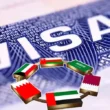In a significant move towards tightening digital security, Pakistan has successfully conducted trials for a new firewall system designed to regulate content uploaded on social media platforms. This development, which aims to curb digital terrorism, has sparked both concern and debate, especially in the context of the ongoing internet disruptions that have plagued the country for several days.
The Firewall Implementation
According to reports from ARY News, the final trial of the firewall, conducted on Tuesday night, involved major platforms such as Facebook, WhatsApp, and Instagram. The system, now poised for full implementation, will filter all user-generated content through a firewall before it becomes visible online. This new layer of scrutiny is intended to quickly identify and trace users engaged in “unusual activity” on social media, according to cybersecurity experts involved in the project.
The firewall system represents a significant leap in the country’s approach to digital regulation. Previously, similar measures were applied only to internet traffic, but this new firewall extends the government’s reach to include social media, which has become a critical arena for public discourse and information exchange.
Impact on Social Media Usage
Experts are divided on the potential impact of the firewall on social media activity. Some argue that it will enhance national security by preventing the spread of harmful content and aiding in the quick identification of digital threats. Others, however, express concern over potential privacy violations and the suppression of free speech.
“While the intention behind the firewall is to protect users and the state from digital threats, there is a fine line between security and censorship,” said a cybersecurity analyst who wished to remain anonymous. “The challenge will be to implement this system without infringing on the rights of citizens to freely express their views online.”
Widespread Internet Disruptions
The implementation of the firewall comes at a time when Pakistan is experiencing severe internet disruptions. For several days, users across the country have reported slow internet speeds, particularly on mobile data networks, which have been severely affected. This has led to widespread frustration among the public, especially among those who rely on the internet for their livelihoods.
Online businesses, e-commerce platforms, and freelancers have been particularly hard-hit by these disruptions. The slow internet has made it difficult to conduct transactions, communicate with clients, or even perform basic online tasks. “Our business has come to a standstill,” said a Lahore-based e-commerce entrepreneur. “With internet speeds this slow, we can’t fulfill orders or respond to customer inquiries, which is causing us to lose money every day.”
According to DownDetector.pk, a service that monitors real-time internet and social media outages, there have been consistent complaints about the slow performance of platforms like WhatsApp and Instagram in major cities including Karachi, Islamabad, Lahore, and Faisalabad. The disruptions have become so severe that the National Assembly’s Standing Committee on IT has taken notice, summoning the Chairman of the Pakistan Telecommunication Authority (PTA) to explain the situation.
Technical and Environmental Factors
While some speculate that the recent disruptions may be linked to the ongoing firewall tests, experts point to a combination of technical and environmental factors as the likely culprits. Cybersecurity experts note that the quality of internet cables, increased digital traffic, and even climate change are contributing to the degradation of internet services across the country.
“The infrastructure supporting our internet services is aging and not equipped to handle the surge in digital traffic we’ve seen in recent years,” explained a telecom engineer. “Additionally, extreme weather conditions, which are becoming more frequent due to climate change, are affecting the reliability of our internet connections.”
Government Response and Public Reaction
The government has acknowledged the public’s frustration with the internet disruptions and has promised to address the issue. Chairman Aminul Haque of the National Assembly’s IT Committee has summoned relevant authorities to discuss the situation and explore potential solutions.
Meanwhile, the rollout of the social media firewall is likely to continue despite the ongoing internet issues. The government remains committed to its strategy of enhancing digital security, even as it grapples with the challenge of maintaining stable internet services.
For now, Pakistanis are left to navigate a digital landscape that is increasingly complex, with the dual pressures of heightened security measures and deteriorating internet infrastructure. How the government balances these challenges will be critical in determining the future of internet freedom and digital security in the country.









